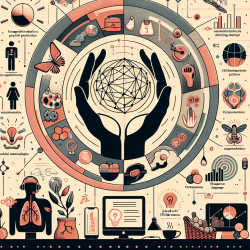The practice of medicine is deeply rooted in ethical obligations that guide physicians in their interactions with patients. One such obligation is the care for patients with AIDS, a topic explored in the research article "Do Physicians Have an Ethical Obligation to Care for Patients with AIDS?" by N. R. Angoff. This article delves into the ethical considerations and responsibilities of physicians towards patients with AIDS, offering insights that can help practitioners enhance their skills and approach to patient care.
The Ethical Landscape of Caring for Patients with AIDS
The research highlights the complex social and political environment surrounding the care of patients with AIDS. During the early years of the epidemic, many physicians and community members expressed reluctance to treat individuals with AIDS due to fear and stigma. This reluctance posed significant ethical questions about the responsibilities of healthcare providers.
The article examines various laws, regulations, ethical codes, and historical practices to understand the physician's obligation to care for these patients. It argues that this obligation transcends legalistic fairness and is deeply rooted in a moral orientation defined by caring and connection.
The Role of Relationship in Medical Ethics
A key takeaway from Angoff's research is the importance of relationship-building in fulfilling ethical obligations. The practice of medicine is not merely a transactional interaction but a relational one where healing occurs through connection. Physicians are encouraged to view their role as one that fosters relationships with patients, allowing for self-realization and moral responsibility.
This relational approach emphasizes that physicians are defined by their interactions with patients and their ability to act virtuously. By embracing this perspective, practitioners can enhance their capacity to care and uphold the ethical ideals of being a good physician.
Practical Steps for Physicians
To integrate these ethical insights into practice, physicians can consider the following steps:
- Cultivate Empathy: Develop a deeper understanding of patients' experiences and challenges by actively listening and engaging with them.
- Foster Trust: Build trust through consistent communication and transparency, ensuring patients feel valued and respected.
- Pursue Continuous Learning: Stay informed about advancements in HIV/AIDS treatment and management to provide comprehensive care.
- Reflect on Practice: Regularly reflect on personal biases and attitudes towards patients with AIDS to ensure they do not impede ethical obligations.
The Impact on Medical Practice
The research underscores that failing to fulfill ethical obligations diminishes a physician's ethical ideal and impacts their capacity to provide quality care. By embracing these responsibilities, physicians not only enhance their practice but also contribute positively to the broader healthcare system.
The exploration of modern medical ethics reveals that true healing is achieved through relationships. By committing to this relational approach, physicians can realize their full potential as caregivers and uphold the noble ideals of the medical profession.
Do physicians have an ethical obligation to care for patients with AIDS?










